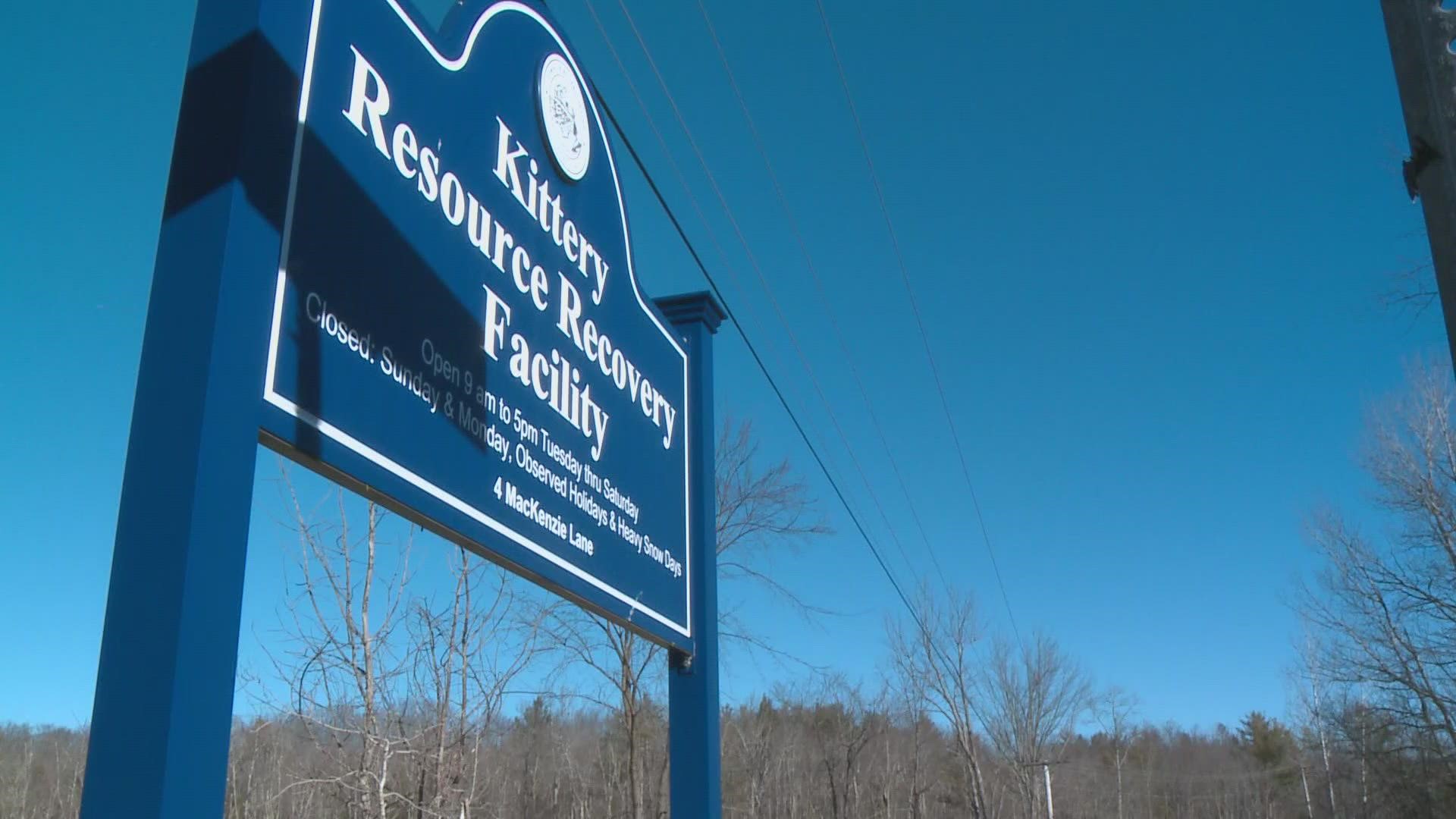KITTERY, Maine — Nearly a dozen private well owners in Kittery are awaiting test results after toxic chemicals were found near the town's dump.
This comes after high levels of PFAS chemicals were discovered in test wells located near a landfill that closed back in the 1990s.
Prior to closing, the facility received materials containing PFAS for decades, and it's unknown if the contamination is widespread
Maine Department of Environmental Protection officials took water samples from nine private wells on Jewett Lane, a quiet dead-end street. Another private well was identified on Wilson Road.
All the homes are located within 1,000 feet of the Kittery Resource Recovery Facility, the town dump transfer station. This fall, samples from three test wells found high levels of industrial chemicals known as PFAS, believed to have originated from a landfill that closed back in the '90s.
"If they identify higher concentrations of PFAS in their well water, they will expand out beyond that, so this is the first step," Kittery Town Manager Kendra Amaral said.
The samples found PFAS levels at 1000 parts per trillion. Maine's drinking water standard is 20 parts per trillion for the sum of six common PFAS compounds.
Under state law, Maine DEP is required to test runoff, known as leachate, from landfills. Patrick MacRoy is deputy director of Defend Our Health. The environmental advocacy group helped draft legislation that requires more state oversight of potential PFAS contamination. He said the levels discovered near the landfill are concerning.
"That's showing quite a bit of movement of PFAS away from the landfill, depending on the groundwater flows. That is obviously putting private drinking wells at risk," MacRoy said.
The toxic chemicals, found in everything from household products to firefighting foam, have been linked to a number of health problems, including organ cancer and developmental delays. Town officials believe construction and household materials containing industrial chemicals were dumped in the landfill, dating back more than four decades.
"We are aware that the Portsmouth Naval Shipyard was utilizing the site to dispose of its materials, but we don't know yet what was in the materials," Amaral said.
The test results are expected to be released in the next few weeks. If levels are higher than state limits for drinking water, town officials said they'll work to make sure impacted residents will receive free bottled water.
Residents with questions and concerns are encouraged to attend a town council meeting on January 10 at 6 p.m.

